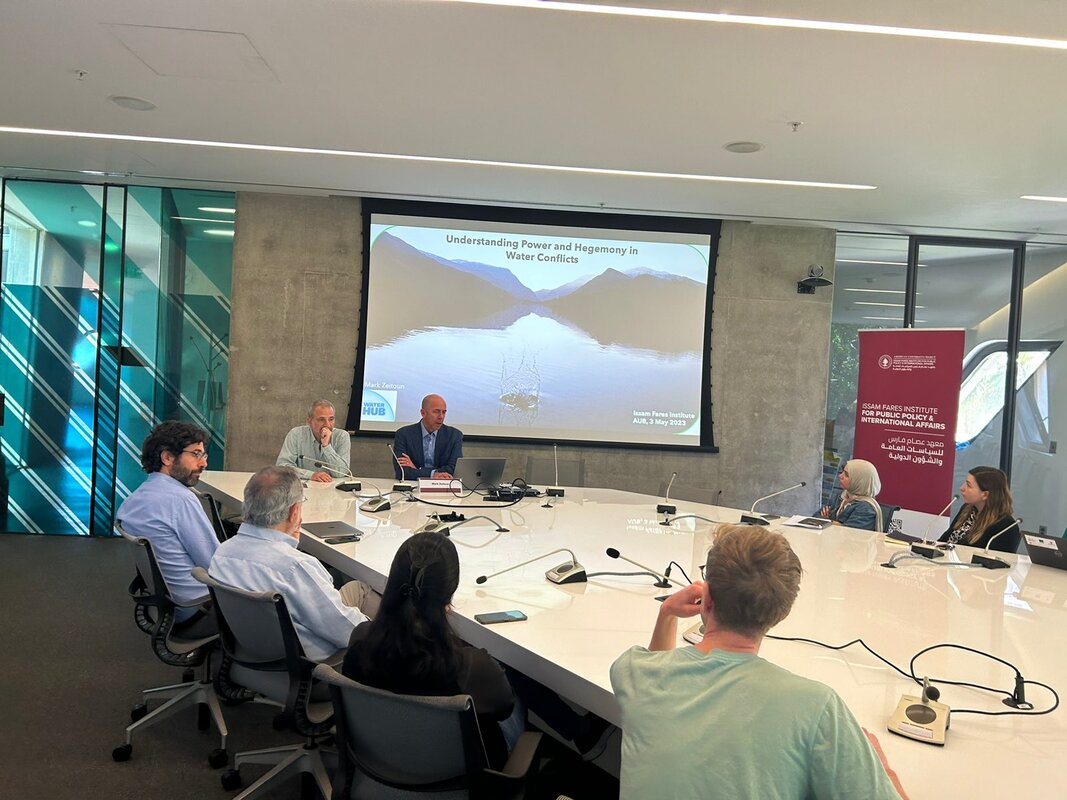|
IFI hosted a lecture titled "Understanding Power and Hegemony in Water Conflicts throughout Western Asia" on May 3 given by Dr. Mark Zeitoun, Director General of the Geneva Water Hub and a professor specializing in water security at the University of East Anglia. Professor Zeitoun began his talk by exploring the various forms of power, such as authority, control, influence, weaponry, and kinetic energy. He also delved into three dimensions of power: structural power, bargaining power, and ideational power. Structural power relates to power dynamics within social structures, bargaining power arises from negotiations or contractual relationships, while ideational power conveys the acceptance and internalization of power through beliefs and ideas. A key point emphasized by Professor Zeitoun was the significance of awareness of rights and protective public policies to restrain the influence of power. Drawing on the South African liberation struggle, he highlighted the manipulative power of oppressors over the minds of the oppressed. Even in the absence of explicit segregation laws, internalized beliefs can perpetuate and reinforce power dynamics. The lecture then turned towards hegemony in water conflicts, which is a combination of both force and consent. Professor Zeitoun highlighted that achieving widespread consent was more resilient than relying solely on domination through force. Water scarcity, intensified by climate change, has emerged as a primary catalyst for water conflicts. Professor Zeitoun illustrated this by presenting examples of water consumption in various aspects of human life, particularly emphasizing the substantial water footprint associated with food production and consumption.
Another crucial aspect discussed was the commodification of water in water conflicts. Water is treated as an economic, political, and military commodity, with the potential of being manipulated for various purposes. In turn, water systems can become targets during wars, exacerbating conflicts. Geopolitical conflicts can also arise from disparities in water distribution, as exemplified by the unequal allocation of water among Ethiopia, Sudan, and Egypt in the Nile River basin. Moreover, restrictive policies and control over water resources in regions like the West Bank and Israel and Gaza can lead to disproportionate access to water, and in turn cause a disproportionality between marginalized populations. Understanding the origins and dynamics of power surrounding water resources is crucial for their proper utilization. Power plays a pivotal role in water conflicts, influencing access, distribution, and control over these essential resources. Zeitoun ended his talk by emphasizing the need for heightened awareness, inclusive policies, and equitable distribution to address water scarcity and minimize conflicts related to water. Comments are closed.
|
Archives
July 2024
|

